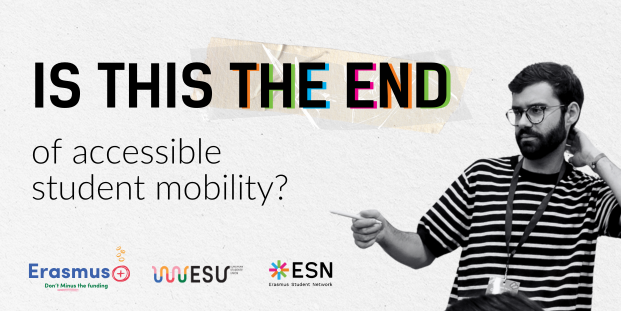
On 13 September 2024, the Council of the European Union released its position on the 2025 European Union budget, proposing several cuts, including a significant reduction of nearly €295 million to the Erasmus+ programme. This proposed cut, introduced during ongoing budget discussions, poses a serious threat to student mobility and projects to foster transnational cooperation in education.
Erasmus+ has long been a cornerstone of European education, providing students with opportunities for mobility, intercultural exchange, and professional development. Cuts to this essential programme would disproportionately affect students from disadvantaged backgrounds, many of whom rely on Erasmus+ grants to access international learning experiences.
At a time when the European Union has set ambitious goals—such as the development of the Council recommendation for the European Degree Label, the strengthening of European University alliances, and making mobility more inclusive for students—these budget cuts seem particularly untimely, detrimental and unaligned with the set priorities. Furthermore, in times when polarisation and nationalism are rising, with more and more citizens not feeling like they have a European identity and questioning Europeanism, downgrading the most successful EU programme to foster intercultural dialogue and exchange is a direct threat to the democratic and intercultural vision of the EU.
The European Students’ Union (ESU), and the Erasmus Student Network (ESN) jointly urge the EU Council to consider the recommendations of the European Parliament’s Budget (BUDG) and Education (CULT) Committees during the upcoming trilogue negotiations. Both committees have called for preserving and expanding Erasmus+ funding, in alignment with the EU’s broader goals.
Background information:
Notably, the budget cuts result from the wish to cover debt from interest rates, while the budget for education and culture is already tiny compared to the budgets for Agriculture and Cohesion. In times when the Erasmus+ programme was considerably largened in its missions and objectives over the last years, these cuts will seriously impact Erasmus+, as National Agencies have estimated that a doubling of the budget is required to be able to continue the current work, not taking into consideration even the new programme components that have been added in recent years (keeping in mind that according to the NA directors actually a fivefold increase would be needed to be able to fulfil all aims of the Erasmus+ project).

Follow ESN